Never one to miss an opportunity to sneak something under the radar, President Donald Trump and his friends in the mining industry used the current global pandemic again.
Not content to just roll back environmental protections, Trump has set his sights higher.
About 238,900 miles higher.
In what is certain to become a contentious move once the pandemic dust settles, Trump signed an executive order authorizing mining on the moon.
The first question from the United States' allies and enemies alike will probably revolve around why Trump thinks the USA has mineral rights on the moon. In fact, the USA already agreed they don't.
The 1979 global Moon Treaty agreement, stated activity in space must abide by international law. International law has specific guidance regarding mineral rights.
But Trump's order stated:
"Americans should have the right to engage in commercial exploration, recovery, and use of resources in outer space."
"Outer space is a legally and physically unique domain of human activity, and the United States does not view it as a global commons."
Despite their close ties, Russia disagreed with the President.
The Russian space agency—Roscosmos—replied:
"Attempts to expropriate outer space and aggressive plans to actually seize territories of other planets hardly set the countries (on course for) fruitful cooperation."
The Russians were not alone in their pushback.
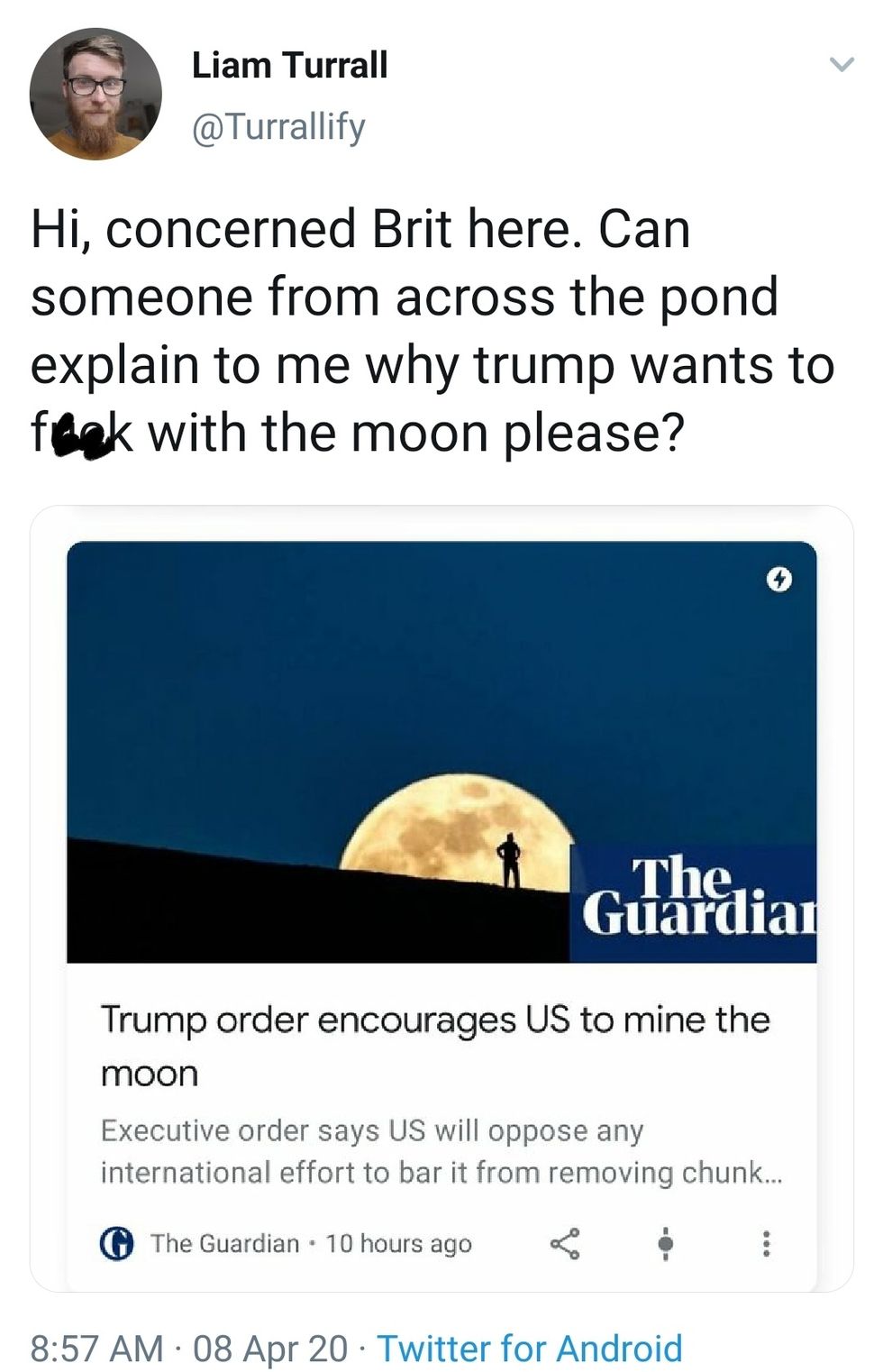
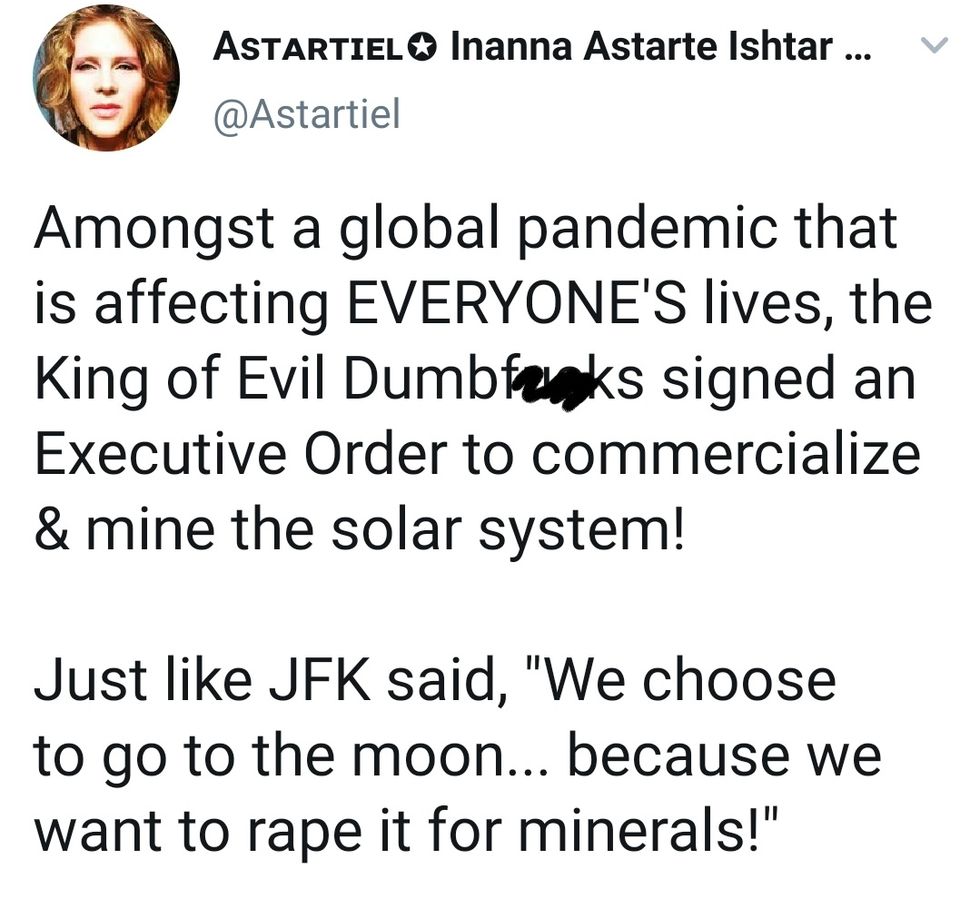
It's unclear what will happen with Trump's executive order. At present, the United States has no means to travel to and from the moon.
Flights to the International Space Station are done with rockets provided by the Russian space program using the Soyuz spacecraft.
Whether Trump's latest move harms that program remains to be seen.
The sci-fi film Moon—about mining the moon—is available here.

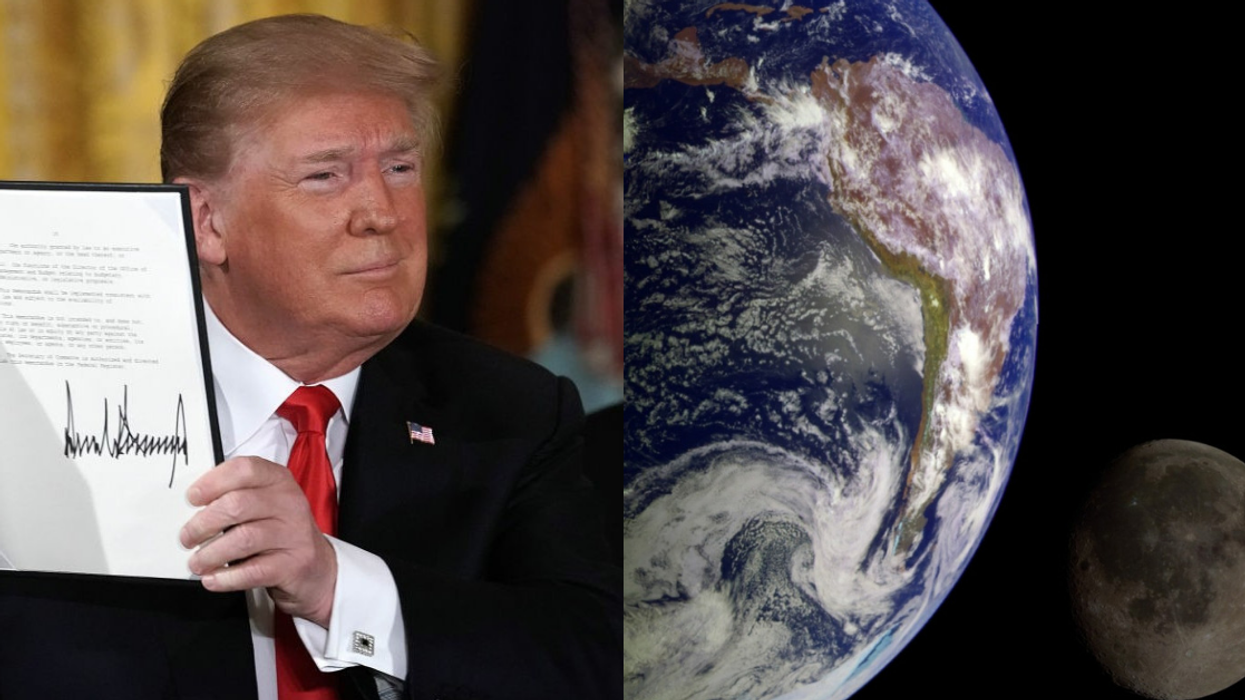

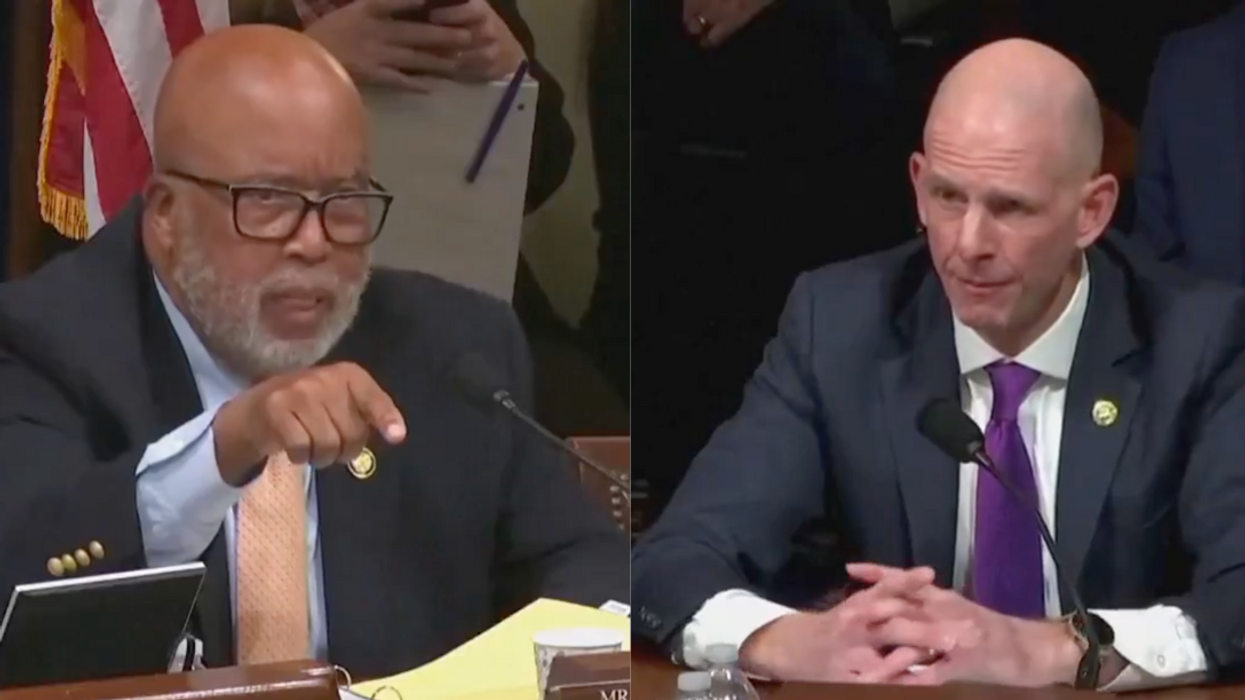

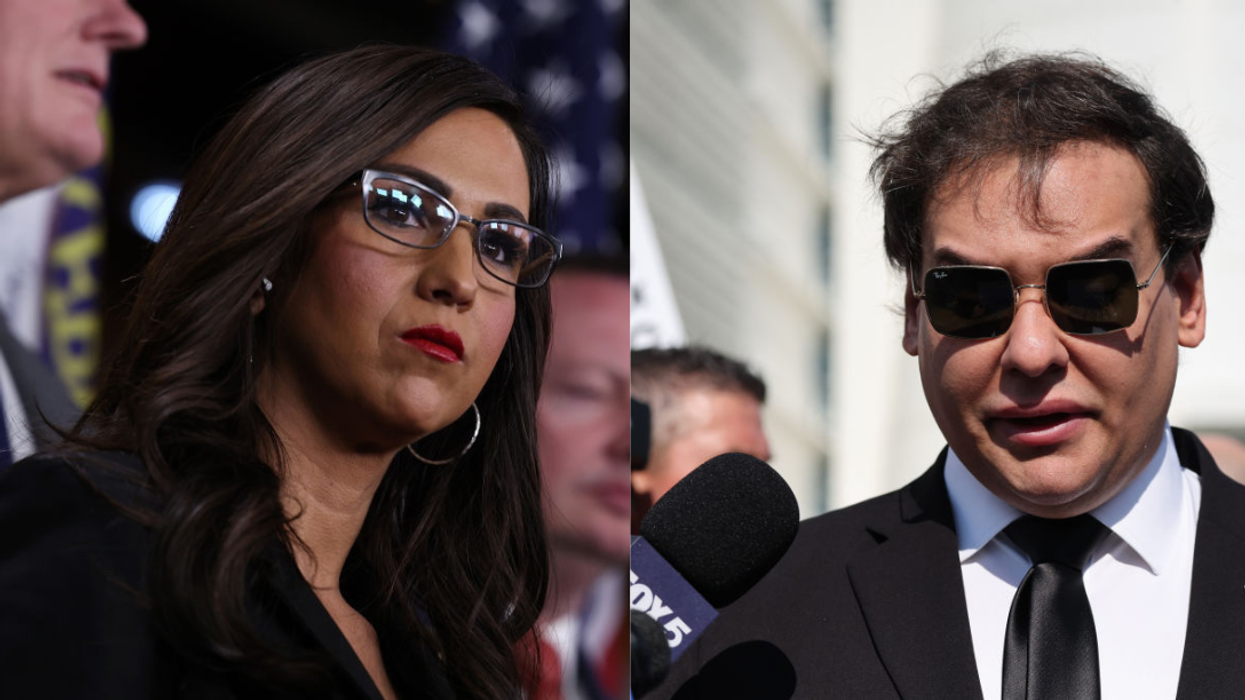

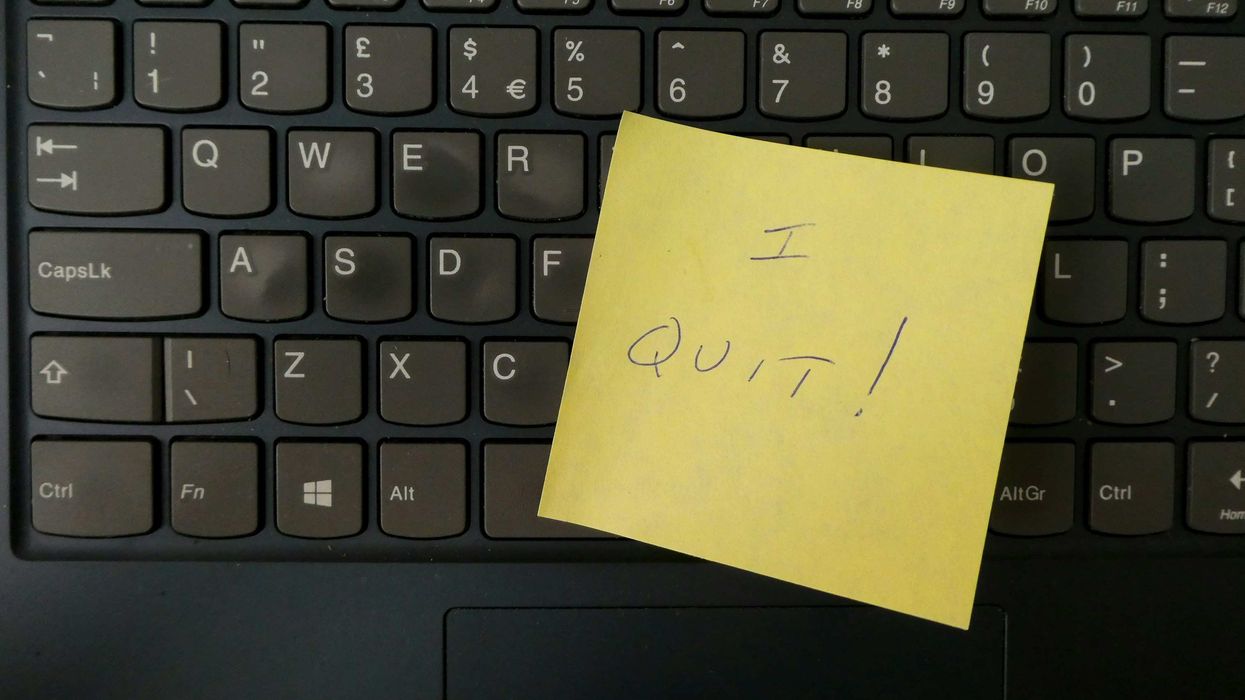
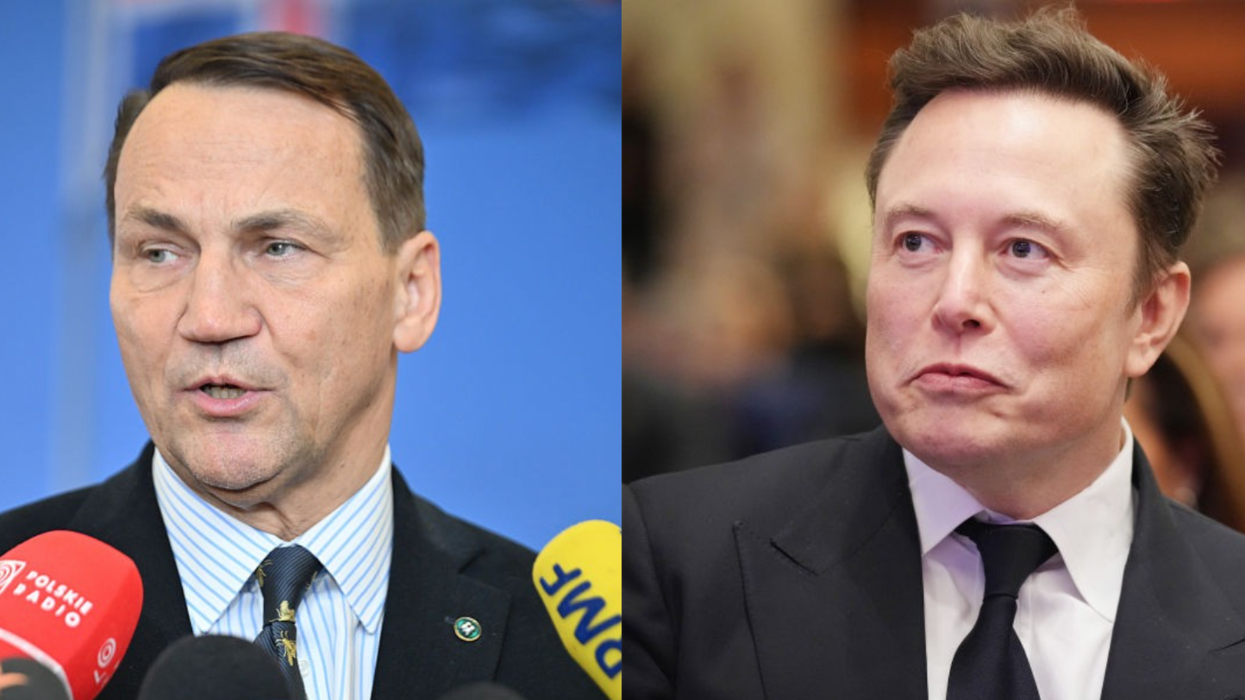
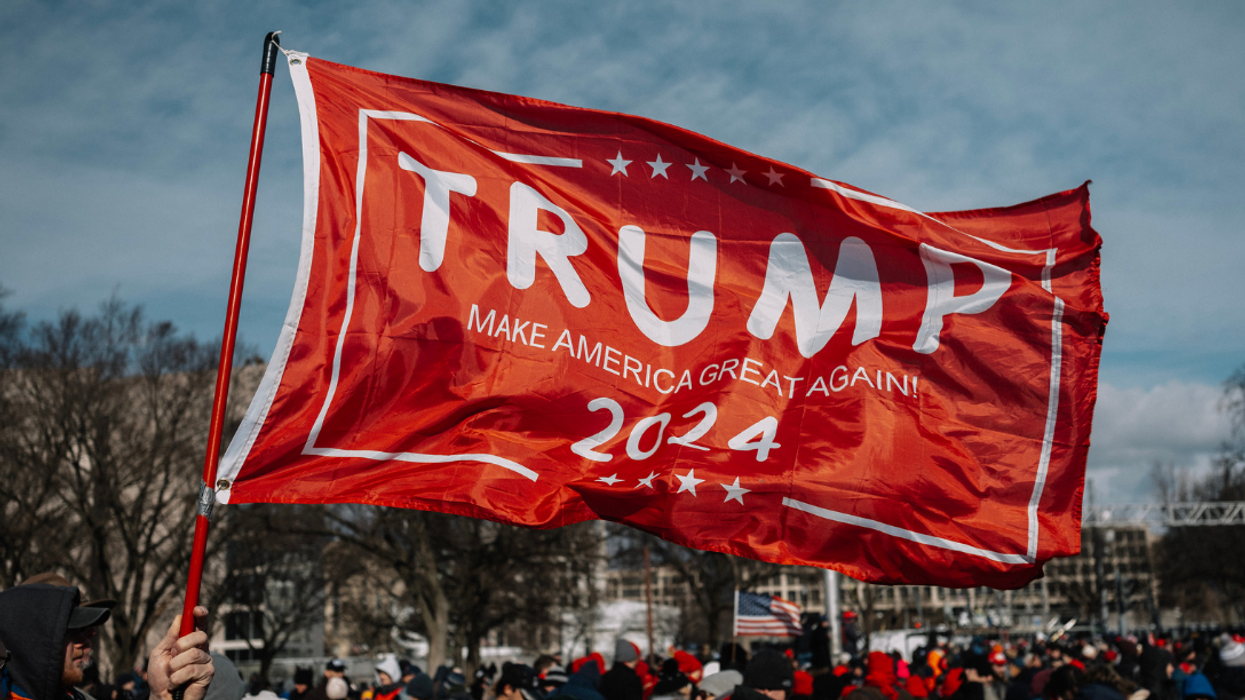


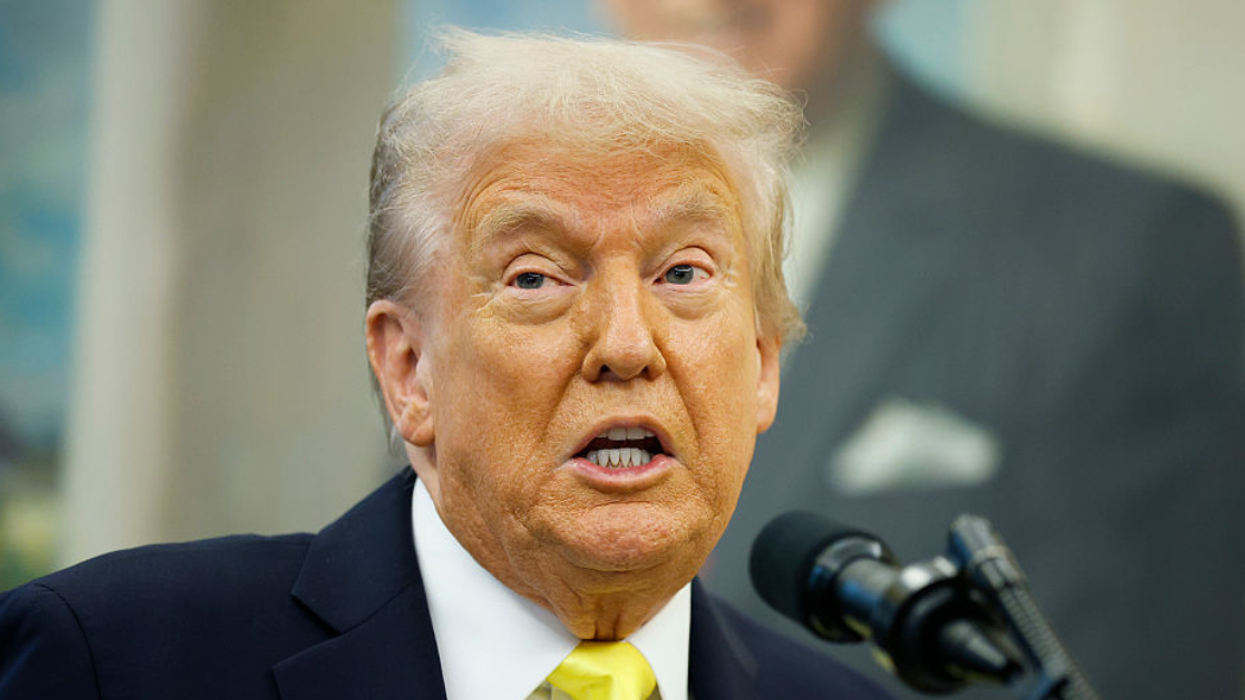

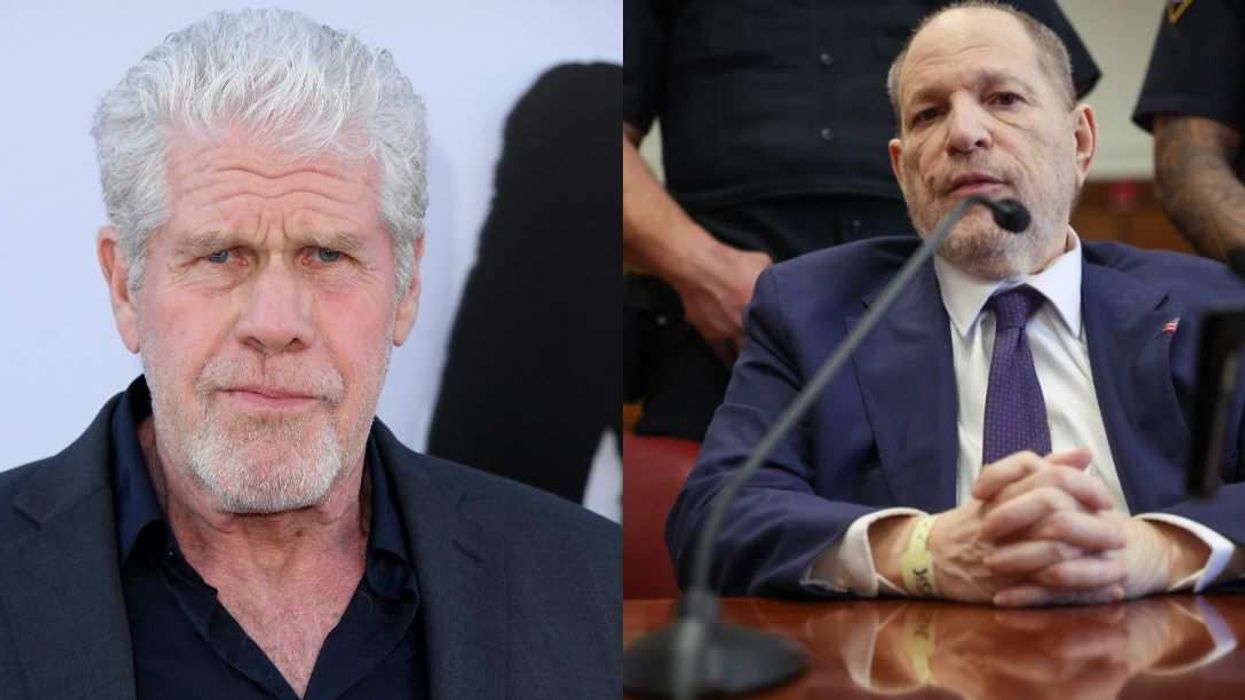
 u/mlg1981/Reddit
u/mlg1981/Reddit u/Miserable-Cap-5223/Reddit
u/Miserable-Cap-5223/Reddit u/riegspsych325/Reddit
u/riegspsych325/Reddit u/raysofdavies/Reddit
u/raysofdavies/Reddit u/NotAsBrightlyLit/Reddit
u/NotAsBrightlyLit/Reddit u/LvLtrstoVa/Reddit
u/LvLtrstoVa/Reddit u/mysocalledmayhem/Reddit
u/mysocalledmayhem/Reddit
 @unpunishablewoman/TikTok
@unpunishablewoman/TikTok @unpunishablewoman/TikTok
@unpunishablewoman/TikTok @unpunishablewoman/TikTok
@unpunishablewoman/TikTok @unpunishablewoman/TikTok
@unpunishablewoman/TikTok @unpunishablewoman/TikTok
@unpunishablewoman/TikTok @unpunishablewoman/TikTok
@unpunishablewoman/TikTok @unpunishablewoman/TikTok
@unpunishablewoman/TikTok @unpunishablewoman/TikTok
@unpunishablewoman/TikTok @unpunishablewoman/TikTok
@unpunishablewoman/TikTok @unpunishablewoman/TikTok
@unpunishablewoman/TikTok
 @helsmcp/TikTok
@helsmcp/TikTok @helsmcp/TikTok
@helsmcp/TikTok @helsmcp/TikTok
@helsmcp/TikTok @helsmcp/TikTok
@helsmcp/TikTok @helsmcp/TikTok
@helsmcp/TikTok @helsmcp/TikTok
@helsmcp/TikTok @helsmcp/TikTok
@helsmcp/TikTok @helsmcp/TikTok
@helsmcp/TikTok @helsmcp/TikTok
@helsmcp/TikTok @helsmcp/TikTok
@helsmcp/TikTok